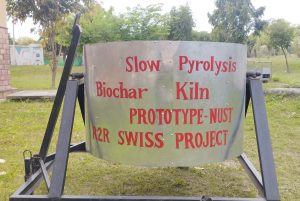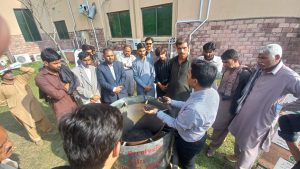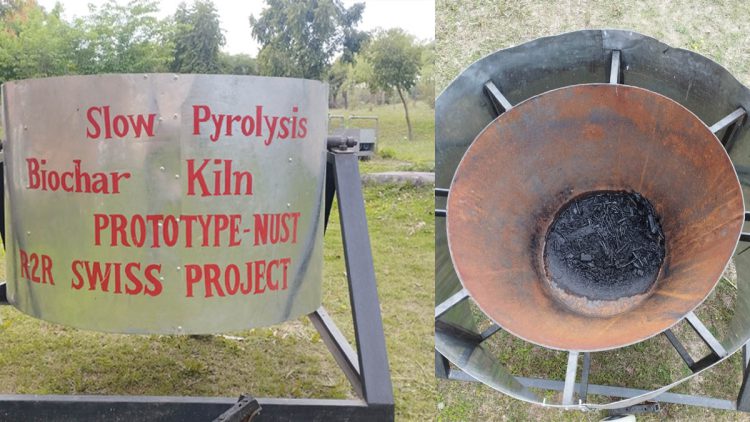 Crop residue burning across Pakistan is a huge environmental problem contributing a significant chunk of greenhouse gases leading to global warming and seasonal smog.
Crop residue burning across Pakistan is a huge environmental problem contributing a significant chunk of greenhouse gases leading to global warming and seasonal smog.

The scientists at ASAB, Dr. Ghulam Haider and his team have developed a portable prototype for converting crop residues to biochar at a farmer’s farm scale. Biochar is an IPCC-recommended carbon sequestration technology, which not only offers carbon sequestration to mitigate climate change but also improves soil biodiversity, fertility, and crop production.


An awareness seminar and hands-on training for farmers was organized at ASAB in collaboration with Arid Agriculture University Rawalpindi. The activity was covered under the NUST-R2R project funded by the Knowledge2Action program of Swissnex, Switzerland to bring the research knowledge into action to address UN sustainable development goals.

A large number of farmers and plant sciences graduate students from around Pakistan, participated in the seminar and training sessions. Farmers have shared their experiences and agreed to follow sustainable practices for crop residue management. They learned and appreciated the overall efforts made by the scientists at ASAB-NUST.
The author is Associate Professor at Department of Industrial Biotech, Atta Ur Rahman School of Applied Biosciences, National University of Sciences and Technology (NUST). He can be reached at ghulam.haide@asab.nust.edu.pk.

![]()

